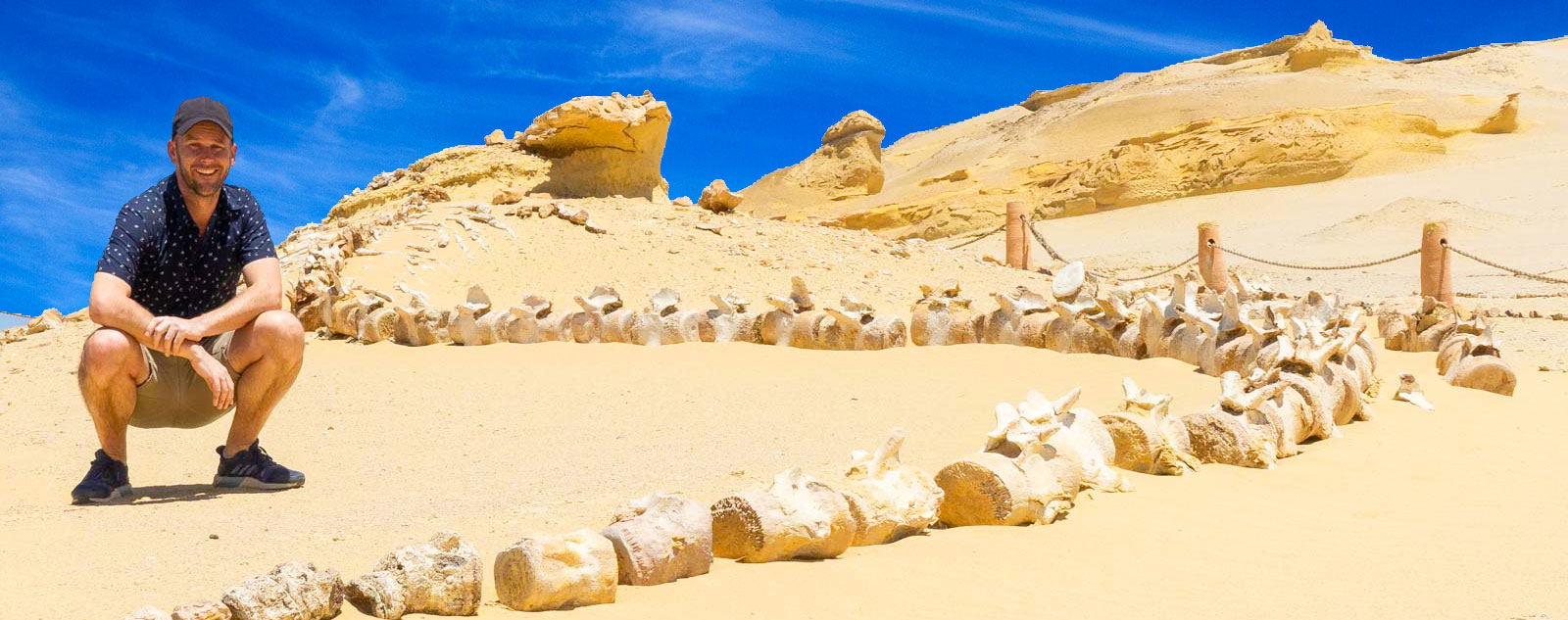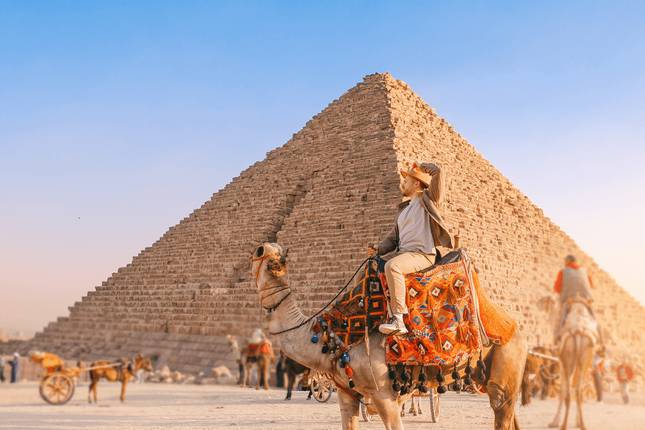Good Guides, Bad Guides, (You know I've had My Share)
Egypt has ideal structures for touring. There are glamourous hotels that cater to foreigners and companies that shuttle groups from one site to another, providing guides, food, tickets and amenities. But nowadays tourism is different. It's natural for travelers to want to wander without an itinerary, discovering what adventures fate brings them.
Your love for adventure shouldn't prohibit you from hiring a personal guide. Personal guides are essential to travel in Egypt. Guides facilitate transportation, use Arabic to communicate with people on-site, and point out important elements of the culture and history of the place. Guides are also there to prevent hassle and harassment, shutting down aggressive sellers, and steering you clear of scammers.
Many locals, wanting to benefit from Egypt's touristic appeal, pose as personal guides, and solicit foreigners without the appropriate level of professionalism. Egypt has a robust informal economy. Many Egyptians work for themselves, so the locals are naturally adept at finding opportunities out the streets, which becomes a market for buying and selling services as well as wares. This has created a problem in tourism. It's become harder to identify who is a real guide and who is not, especially if you don't have an understanding of local civics and the different kinds of people we have. Independence and improvisation are great ways to see Egypt, but on the road less travelled knowledge is power. Tourists should know whom they should trust and whom they should not trust as personal guides.
 |
| A tourist at Wadi Al Haytan (The Valley of the Whales) |
Personal Guides and On-Site Guides
A personal guide is one whom you have hired to bring you to a place, like the pyramids or a grand bazaar and provide a guided tour. A personal guide is not affiliated with the location you are visiting and they often purchase a ticket at a local price if entering a temple, pyramid site, or museum.
On-site Guides: A lot of museums have resident guides that know the museum, and give talks for free. They take a gratuity, 50 to 100 LE is good. If you don't want their services, you just tell them right away that you don't want a guide. Temples across Egypt are similar. Usually they'll be a local sentinel at the site who is permitted to interact with tourists, give their little spiel related to the temple. The can also be tipped around 50 LE or you can say you're not interested in the beginning. The pyramids does have on-site guides who are NOT allowed to charge anything for their services, but they can be hard to find.
This article isn't about on-site guides. On-site guides don't really leave the temple or museum you are visiting, so you aren't at risk of being hassled by them usually. In most cases they're very nice people. We are talking about personal guides, people you are going to put your trust in for one or several days during your trip. Their role is an important one, so it's important to pick the right person.
- Airbnb experiences, or similar platforms such as hotels.com, trip advisor, etc.
- Organic Online Friendships
- Local Residents who are peers in your professional network.
- Travel Companies
With so many options for good guides, how are bad guides getting so much attention? Because they’re ubiquitous and very connected. Unqualified guides solicit in the following places:
- Outside the airport when you land
- At The Pyramids and other popular tourist sites
- On the streets in downtown
- Through the economy hostel you are staying at
- Through taxi drivers or uber drivers
- Through anyone you just met but don’t really know well
How can you reward good guides?
Good guides are worth their weight in gold. If you’re happy with their services, tip them. I would tip them around 10% of what the trip cost, since they’ve added value to your experience. If a trip costs 800 LE, consider tipping 80, or round up to 100 ($5) if that is easier. If a driver has been with you for a day and charges 500 LE, consider (50 LE) a good tip. He may not own the car and have to pay another person per day to use the car.
Recommend them online: Good guides love good reviews. They know the importance of good comments for getting future customers.
Ask them questions and ask for other recommendations. Chances are that they know and have seen parts of Egypt you’ll never hear about online. Egypt is like an insider club for locals, because what's happening is always changing.
How should you respond to bad guides?
Prevention is the name of the game. Recognize them, say no thank you and a walk away. If you’ve agreed to work with a bad guide, it's very difficult to get out, as they turn on the social/psychological pressure. It’s best to avoid them, don’t get in the car, don’t sign up for what they are offering.
Report them to the tourism police. In Cairo police are stationed everywhere. In most metropolitan areas, like downtown, or tourist areas, like pyramids and Khan el Khalili, they are easy to find and get a hold of. Any harassment should be reported to these people so that they can nab them and detain them.
That's about all you can do as bad guides usually aren't registered with any online platform, they don’t suffer from bad reviews.
In summary, Egypt is an incredible place to see, but always remember the value that great guides bring to the table. Guides who are enthusiastic, honest, open, and committed to your enjoyment are bound to make your trip more memorable. Meanwhile unqualified guides are easy to spot, once you know what to look for. With this information there's no reason travels in Egypt can't be smooth and hassle free. Just remember that the magic world is "no thank you" and when you need to, vote with your feet.
Further Reading
WOW Woman Profile: Egyptologist, Tour Guide, Business Woman
What’s the difference between good guides and bad ones?



Comments
Post a Comment